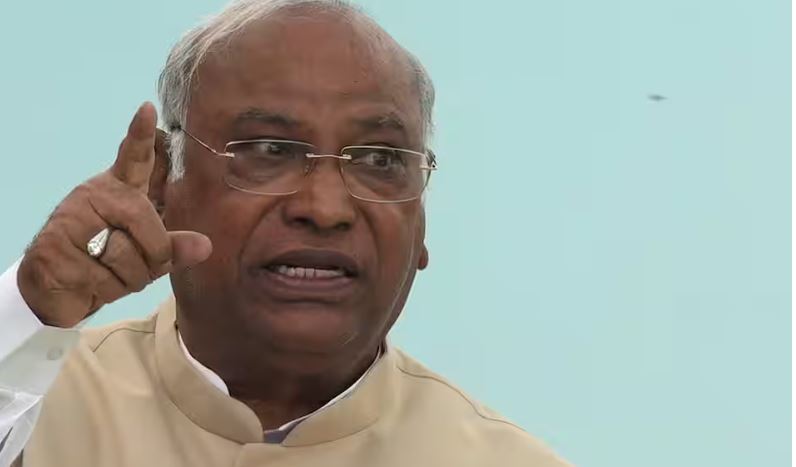Introduction: Challenging the Government’s Legislative Maneuvers
On July 1, amidst contentious legislative changes, the Congress party launched a scathing critique against the government’s hasty enactment of three new criminal laws, accusing them of coercive tactics and vowing to prevent what they termed as “bulldozer justice” within India’s parliamentary framework.
New Criminal Laws
The implementation of three new criminal codes—Bharatiya Nyaya Sanhita (BNS), Bharatiya Nagarik Suraksha Sanhita (BNSS), and Bharatiya Sakshya Adhiniyam (BSA)—marked a significant overhaul of India’s legal landscape. These laws, replacing antiquated colonial statutes, aim to address contemporary social realities and modernize the criminal justice system.
Congress’s Allegations: Forcible Passage and Democratic Integrity
Accusing the government of procedural malpractice, Leader of Opposition in the Rajya Sabha, Mallikarjun Kharge, condemned the suspension of 146 MPs during the legislative process. In a statement, he underscored, “INDIA will no longer allow this ‘bulldozer justice’ to prevail in our parliamentary system,” highlighting the opposition’s steadfast stance against legislative overreach.
Initial Repercussions: First FIR and Public Backlash
Amidst the rollout of the new laws, the first FIR under the Bharatiya Nyaya Sanhita sparked immediate controversy. Congress General Secretary Jairam Ramesh criticized the government’s actions, pointing out the irony of a street vendor’s arrest for obstruction under the new legislation, a move perceived as heavy-handed and indicative of potential misuse.
Legal Critique and Dissent: A Flawed Legislative Process
Senior Congress leader P. Chidambaram raised substantive concerns about the new laws, alleging a lack of meaningful debate and transparency during their passage. He criticized the government’s approach as a hurried replacement of existing laws without adequate scrutiny, emphasizing the need for constitutional alignment and modern jurisprudential principles.
Judicial and Public Response: Anticipated Challenges
Anticipating legal challenges, Chidambaram predicted disruptions in the administration of criminal justice and emphasized the imperative for future amendments to ensure constitutional conformity and legal efficacy. The passage of these laws, he argued, may precipitate a wave of legal battles and public discontent, underscoring the precariousness of their implementation.
Political Implications: Opposition Unity and Government Accountability
The Congress party’s critique extends beyond legal implications to broader democratic concerns. Senior leader Shashi Tharoor expressed regret over the lack of substantive parliamentary debate on such transformative legislation, highlighting the erosion of democratic norms and the imperative of informed legislative deliberation.
Criticism of Draconian Measures: Impact on Justice System
Congress MP Manish Tewari condemned the new laws as potentially pernicious and draconian in their enforcement, anticipating operational confusion within India’s already burdened judicial system. Highlighting the staggering backlog of 3.4 crore pending cases, Tewari warned of administrative chaos and judicial overload under the dual system mandated by the new legislation.
Future Challenges and Reform Agenda
Looking ahead, the opposition’s focus remains on legislative reform and judicial oversight. The push for amendments and judicial review underscores a commitment to safeguarding constitutional integrity and ensuring equitable justice delivery in a rapidly evolving legal landscape.
Conclusion: A Call for Deliberative Democracy
The Congress party’s vocal opposition to the forcible passage of new criminal laws reflects a larger struggle for procedural integrity and democratic governance. As India navigates these legal reforms, the imperative for transparent, inclusive legislative processes becomes ever more critical.
Summary:
| Key Learning Points |
|---|
| Opposition’s critique of coercive legislative tactics |
| Implementation and implications of new criminal laws |
| Legal challenges and anticipated judicial responses |
| Impact on India’s judicial system and public sentiment |
| Calls for legislative reform and democratic accountability |
Soumya Smruti Sahoo is a seasoned journalist with extensive experience in both international and Indian news writing. With a sharp analytical mind and a dedication to uncovering the truth, Soumya has built a reputation for delivering in-depth, well-researched articles that provide readers with a clear understanding of complex global and domestic issues. Her work reflects a deep commitment to journalistic integrity, making her a trusted source for accurate and insightful news coverage.



